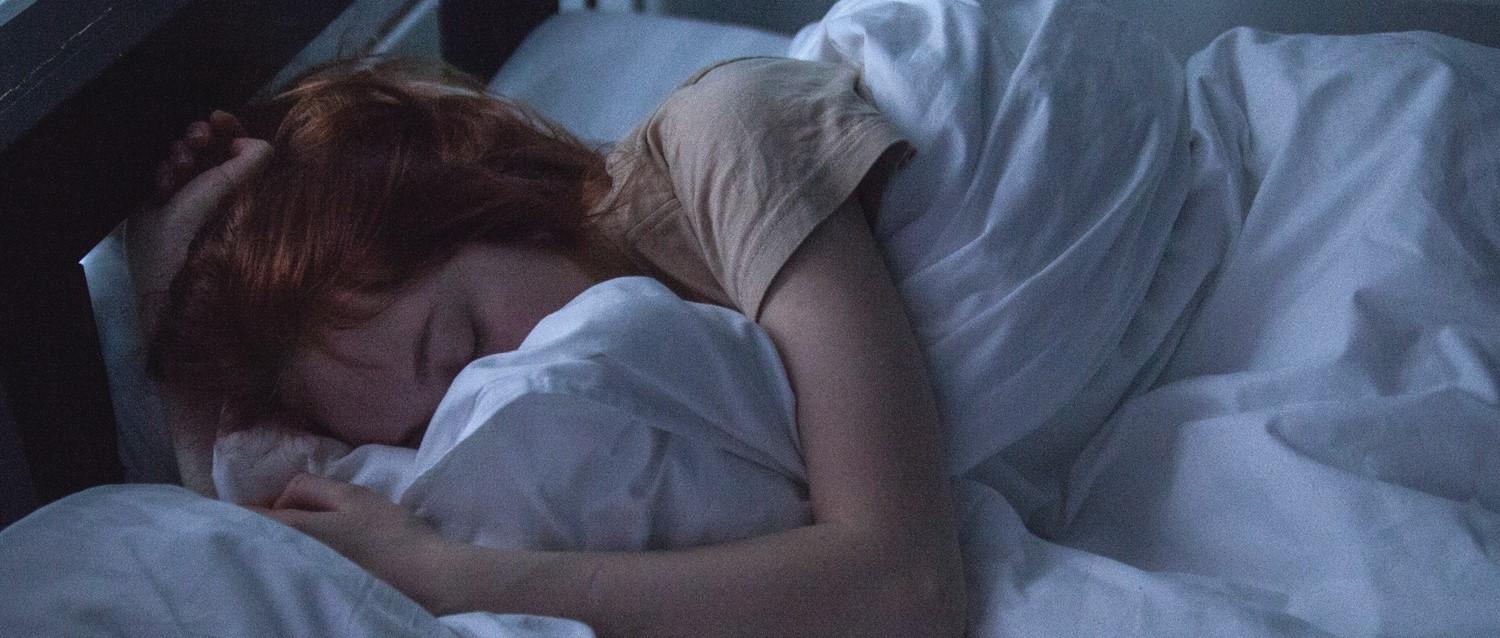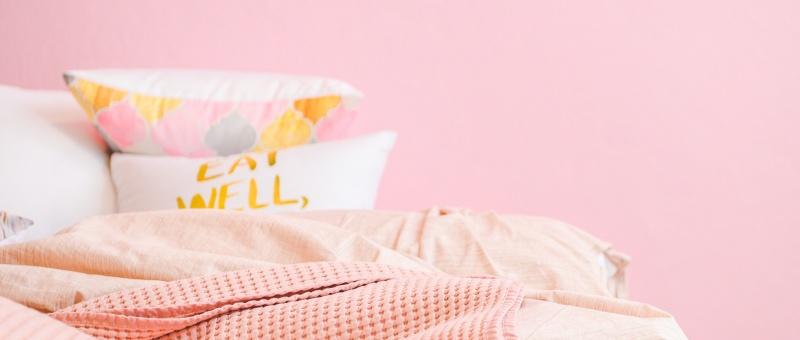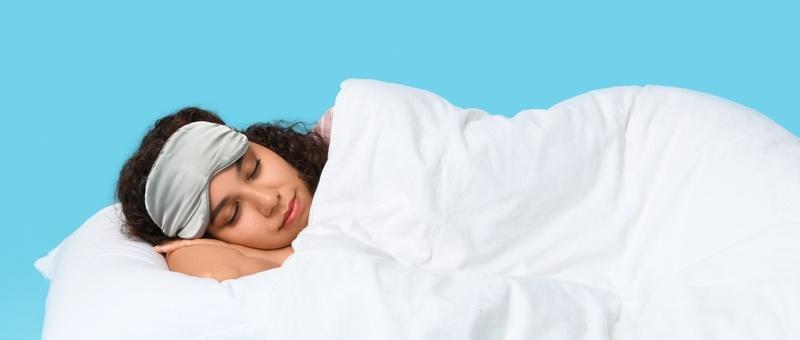
Does getting good sleep really improve your skin?
Peer reviewed by Dr Sarah Jarvis MBE, FRCGPLast updated by Amberley DavisLast updated 4 Mar 2022
Meets Patient’s editorial guidelines
- DownloadDownload
- Share
- Language
- Discussion
Sleep is where your body and mind recharges, restores and heals itself. During good sleep, your body prevents and repairs skin cell damage, significantly improving not only your skin's appearance but its strength and ability to protect against harmful external elements. On the other hand, poor sleep can increase inflammation, which can make certain skin conditions worse.
In this article:
Continue reading below
Sleep schedule and skincare
As a society, we are generally willing to invest in cosmetic products that promise clearer or more youthful-looking skin. In Great Britain alone, the skincare market is worth over £2 billion, with non-medicated face care holding the highest value.
Yet, having an expensive skincare routine has limited benefits if you're not getting enough good-quality sleep. Having a good sleep schedule is one of the best steps you can take to achieve healthy skin.
During sleep, your body restores and repairs itself from the stressors of the day. This includes your skin - the largest organ in the human body - as part of your body's own nightly, regenerative skincare routine. This can have a positive impact on inflammatory skin complaints like acne, eczema and rosacea. In terms of aesthetic improvements, good-quality sleep also counts as 'beauty sleep' because it can significantly improve the appearance of the skin.
According to the Sleep Foundation, a good-quality night's sleep includes sleeping for roughly 7-9 hours (for adults), waking up no more than once, falling asleep within 20 minutes if you do wake up, and feeling rested and energised in the morning.
As you sleep
By sleeping for long enough and without too much disturbance, your body is able to go through distinct stages that contribute to healthy skin, as well as to your overall health. These stages are part of what's known as circadian rhythms - periods of different biological activity controlled by your biological clock.
Stages of sleep skincare
These include:
Somatotropin production - this human growth hormone (HGH) is largely produced during the first few hours of sleep (the slow-wave sleep phase). It helps to repair skin cell damage, and low levels are associated with dry, thin and pale skin.
Melatonin production - the levels of this hormone increase over the next couple of hours. Melatonin works as an antioxidant, reducing skin ageing by fighting free radicals (unstable atoms that can damage cells).
Collagen production - this protein is triggered during the final sleep stage - known as rapid eye movement (REM) sleep. Collagen helps to make the skin smooth and minimise fine wrinkles. There is a strong correlation between low collagen production and aged skin.
Of course, getting good-quality sleep does much more than support your skincare routine: "Sleep is the cornerstone of your functioning immune system and inflammatory pathways.
"Everything to do with how you function is connected to this, including your skin, mental health, and protection against diseases," explains consultant dermatologist Dr Tess McPherson, senior clinical lecturer for paediatric dermatology at Oxford and British Society of Paediatric Dermatology (BSPD) member.
This means that your sleep schedule also impacts medical skin conditions, such as skin rashes. As poorer sleep is linked to greater inflammation, it can make inflammatory conditions worse.
Continue reading below
Poor sleep hygiene, poor skin
If your current sleep schedule involves poor-quality sleep, this can significantly affect your skin, and the impact can be immediate.
Research shows that even just one night of poor sleep can result in:
Dark under-eye circles.
Paler skin.
More wrinkles and fine lines.
Drooping eyelids.
Swollen eyes.
Droopy corners of the mouth.
Long-term effects of a poor sleep schedule
Consistently experiencing poor-quality sleep takes its toll. One study of good sleepers and poor-quality sleepers found that:
Poor sleepers had significantly higher signs of skin ageing.
Good sleepers had 30% greater recovery of their skin barrier (the outermost layer of skin cells that helps to retain moisture and protect your skin from harsh external elements like ultraviolet (UV) rays and pollutants).
At 24 hours after exposure to UV light, good sleepers had significantly better recovery from erythema (a type of skin rash caused by injured or inflamed blood capillaries).
Good sleepers also reported a better perception of their physical attractiveness.
This demonstrates how the impact can be both aesthetic and medical - sleep affects not only how your skin looks, but also its ability to protect itself and recover from skin irritations.
Skin appearance and ageing
During the night, levels of the stress hormone cortisol rise. During inadequate sleep, there is a greater risk in these levels which can trigger inflammation - a protective immune system response to harmful substances and tissue damage. This breaks down the proteins that keep your skin smooth and glowing.
Poor sleep hygiene is also associated with skin dehydration and decreased elasticity, which can lead to fine lines and wrinkles. Increased sweat production during your sleep acts as a natural skin moisturiser, helping to avoid this. Poor sleep can also lower your skin pH levels, which may in turn cause dry skin.
Furthermore, having a weaker skin barrier increases your risk of damage from UV rays. As well as wrinkles, liver spots, and leathery skin, this may result in serious problems such as eye damage or melanoma (the most dangerous type of skin cancer).
Skin irritations and diseases
"People with skin diseases such as eczema have skin barrier problems and inflammatory problems," says McPherson. "This causes itchiness and irritation which often leads to disrupted, poor-quality sleep.
"In turn, poorer sleep makes eczema more inflamed and can be a factor that makes people more resistant to treatment. In this sense, people with skin conditions like eczema can get locked in a vicious cycle."
Research has also found a similar pattern for people who have rosacea (a skin condition where blood vessels are visible on the face and acne-like spots can appear) and for people with acne. While poor sleep is not a direct cause of these skin problems, it does appear to aggravate them. In addition, many people experience stress due to their skin's appearance, which can further raise cortisol levels, making inflammation worse.
Continue reading below
How to get a better sleep routine
McPherson advises that people with medical skin issues need appropriate skin treatment. She also has practical advice that may improve quality of sleep:
Don't keep your phone near your bed. Do switch off notifications.
Don’t use your phone directly before sleep - the brightness of a phone light is like having a shot of caffeine when it comes to staying awake.
Implement a simple wind-down routine.
Don't have caffeine too close to bedtime.
Do exercise and move about a lot in the day.
Do ensure surroundings are dark and quiet.
In her book Skin Conditions in Young People, McPherson discusses how young people are particularly vulnerable to entering a "vicious and unhealthy psychological cycle" involving poor sleep patterns, worsening skin conditions and related anxiety.
Anxiety around a poor sleep schedule can happen at any age. McPherson also shares tips that may help if sleep has become an anxiety-inducing event:
If you're unable to sleep, get up and do something - this could help break the cycle of anxious thoughts.
Don't scroll through your phone - certain things you read can increase anxiety and keep your brain from entering rest mode.
Try slow breathing techniques - breathing out for longer than you breathe in can help trigger a state of physical and mental relaxation.
Patient picks for Sleep and insomnia

Healthy living
Is bed rotting helping or harming our health?
In the late 1960s, John Lennon introduced the world to ‘bed peace’. More than half a century later, beds are still being used to turn everyday rest into cultural statements or wellness trends. In recent years, TikTok has been flooded with the ‘bed rotting’ movement. We explain what it is, if it’s actually good for you, and whether it’s as gross as it sounds.
by Victoria Raw

Healthy living
How to improve your sleep behaviour
Sleep is important for our wellbeing, and a lack of shut-eye can affect everything from performance at work to immune function. As one in five of us aren't getting enough sleep, we explore the best ways to improve sleep behaviour.
by Victoria Raw
Continue reading below
Article history
The information on this page is peer reviewed by qualified clinicians.
4 Mar 2022 | Latest version
4 Mar 2022 | Originally published

Ask, share, connect.
Browse discussions, ask questions, and share experiences across hundreds of health topics.

Feeling unwell?
Assess your symptoms online for free
Sign up to the Patient newsletter
Your weekly dose of clear, trustworthy health advice - written to help you feel informed, confident and in control.
By subscribing you accept our Privacy Policy. You can unsubscribe at any time. We never sell your data.